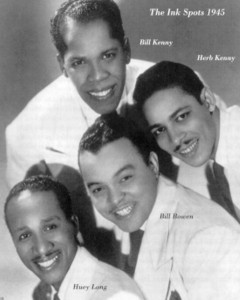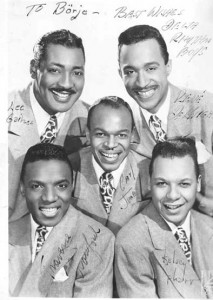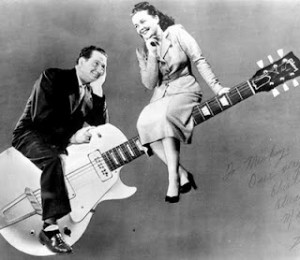Popular in the 1930’s and 40’s, the Ink Spots helped define the stylings that led to R&B and Rock and Roll. Formed in the early 1930’s in Indianapolis, the group consisted of original members Orville “Hoppy” Jones, Ivory “Deek” Watson, Jerry Daniels and Charlie Fuqua, and was originally called ‘The Four Ink Spots’. Some of their hits include “When The Swallows Come Back To Capistrano”, “Do I Worry”, “Whispering Grass”, “Java Jive”, “Shout, Brother, Shout”, “Don’t Get Around Much Anymore”, “I Can’t Stand Losing You”, “Cow-Cow Boogie” (with Ella Fitzgerald), and “Into Each Life Some Rain Must Fall”. I ran across this tune the other day and thought I’d share it here, but I haven’t been able to place which recording it’s from.
Get some ‘Alabama Barbeque’ with the Ink Spots…



